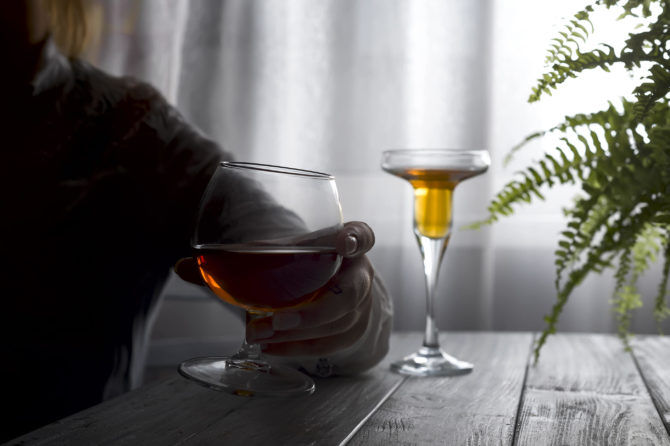
How Alcohol Affects Women Differently Than Men
National surveys show that 1 in 2 women of child-bearing age drink alcohol, and 18% of these women binge drink.
Alcohol affects males and females in different ways. Although men are statistically more likely to drink alcohol, women absorb more alcohol than men due to gender differences in chemistry and body structure. This means women can be more vulnerable to the effects of excessive use.
Women have less body water than men of similar body weight and achieve a higher concentration of blood alcohol level than men, meaning absorption takes place more quickly with longer lasting effects.
Women tend to weigh less than men, and a woman’s body generally has less water and more fatty tissue than a man’s. While water dilutes alcohol and fat retains it, that means when men and women drink at the same rate, women sustain greater exposure and are at a higher risk than men for damaging consequences.
Differences in brain chemistry, metabolism and hormones indicate that drinking is more likely to cause long-term health problems, including alcohol-related organ damage and to trauma resulting from traffic crashes and interpersonal violence, in women than men.
While approximately 20% of men have an alcohol abuse disorder, compared to between 7% and 12% of women, recent students demonstrate that the drinking habits of women are becoming more akin to those of men. Teenage females have higher rates of underage drinking and binge drinking than their male counterparts.
More women are struggling with alcohol abuse, and, while taking into account the gender differences in alcohol response, it is important to examine the effects this disorder has on women. Alcohol abuse has evolved from being looked at primarily as a men’s issue, as women often experience its harmful effects in a more rapid way than men.
Drinking regularly can lead to serious health issues
Studies show that consuming alcoholic beverages increase the risk of breast cancer, as women who have three drinks per week have a 15% higher risk. Women who abstain generally have less of a risk for heart disease, liver disease, stroke, stomach bleeding, and brain damage. Excessive alcohol use may also make maintaining conditions such as diabetes and high blood pressure more difficult while increasing the chances of contracting sexually transmitted infections in instances of unsafe sexual encounters.
Women are more likely to be diagnosed with disorders such as depression and anxiety than men, and higher rates of these mental health symptoms may suggest that a woman may respond to these issues through self-medication ultimately leading to a new disorder such as alcoholism.
Women are more likely to develop an addiction
Though men are more likely to use and abuse drugs more frequently and at a younger age, women are more likely to go to the emergency room or fatally overdose because of substance abuse. Women transition from substance abuse to substance dependence and addiction at a faster pace than men, and are generally more susceptible to the medical or social consequences of dependence. They often find it more difficult to quit and are more likely to experience relapse or a greater intensity of cravings.
Alcohol can affect the reproductive system
Excessive drinking may disrupt the menstrual cycle while increasing the risk of infertility. Approximately 12% of adult women binge drink 3 times a month, women who drink alcohol while pregnant are more likely to suffer from miscarriage, stillbirth, premature delivery, and even Sudden Infant Death Syndrome.
Even a small amount of alcohol can negatively impact an unborn fetus in pregnancy, while alcohol abuse can lead to developmental, behavioral, and physical impairments in a child. 10% of pregnant women drink alcohol, and drinking during pregnancy can lead to brain damage and other health Fetal Alcohol Spectrum Disorders. These are completely preventable if a woman does not drink at any time during pregnancy.
Binge drinking is a risk factor for sexual assault
While excessive drinking can lead to more vulnerability for any gender, young females in college settings are especially susceptible to alcohol-related abuse. 1 in 20 college women are sexually assaulted each year and research suggests the risk of rape is increased when both the attacker and the victim have consumed alcohol. Substance abuse has been found to occur in 40%-60% of incidents involving intimate partner violence.
Women face unique obstacles to treatment
Women face barriers to treatment such as family responsibilities, transportation issues, financial limitations, and stigma. This indicates that they are less likely to receive adequate care for substance abuse treatment. In 2011, women made up just 33% of drug rehab admissions.
Women may be less likely to address their needs because they lack the social support to make a transition into recovery, may struggle with societal pressures and stigma, cost of care may be too high, and may have a difficult time balancing the needs of childcare with the acquisition of real help on an individual basis.
The more we know about the gender-related issues of alcohol-related problems, the better we can do in preventing and treating individuals in all populations.
Although women are affected by alcohol use and abuse in ways that are potentially more dangerous than those of men, seeking the help you need transcends all and any gender barriers. Comprehensive treatment knows no boundaries.
If you or a loved one is seeking help to overcome addiction, we at Windward Way Recovery are here to help by providing community, connection, and a purpose. Contact our professional care team and embark on an exciting voyage of health, happiness, and healing.
At Windward Way, we encourage women to flex their empowerment and find their best selves. Through a diverse array of treatment modalities that include group, individual, experiential, holistic, biosound, and meditation therapy, we can face the challenges of recovery through tangible goals.
Give us a call at (855) 491-7694, and we can begin the adventure together.
Leave a reply